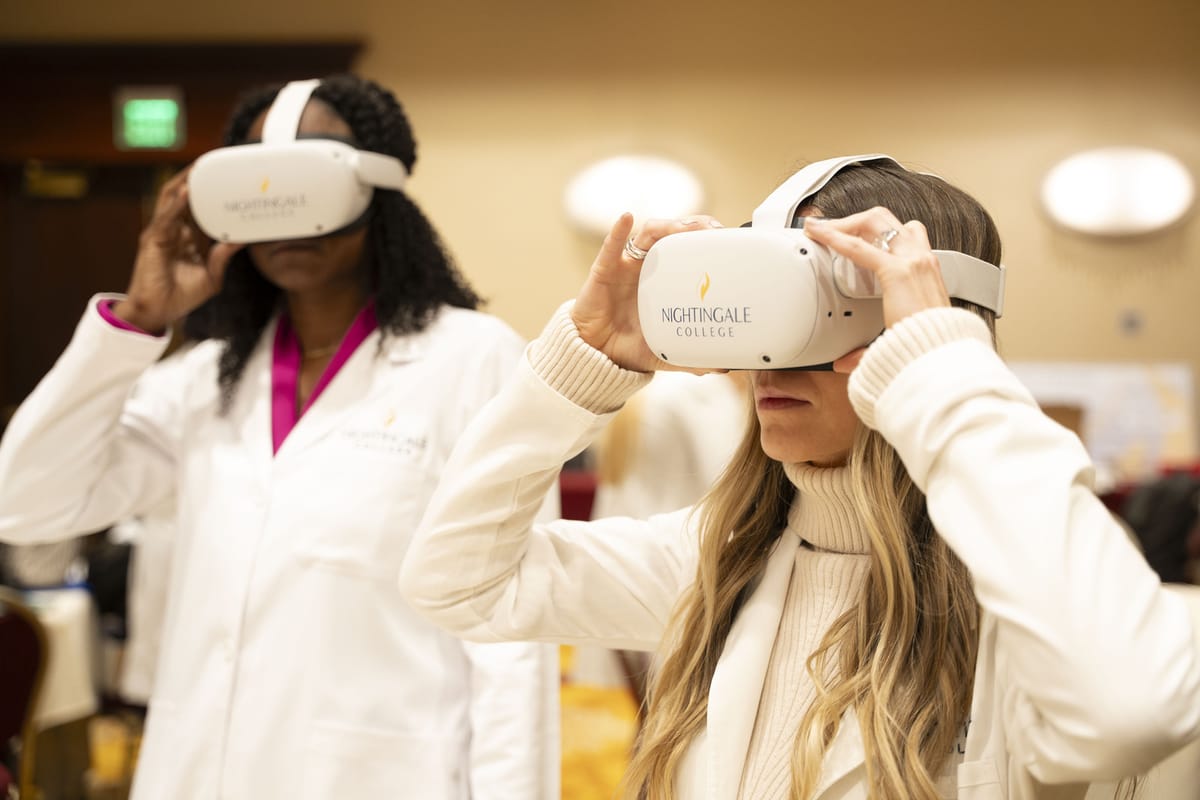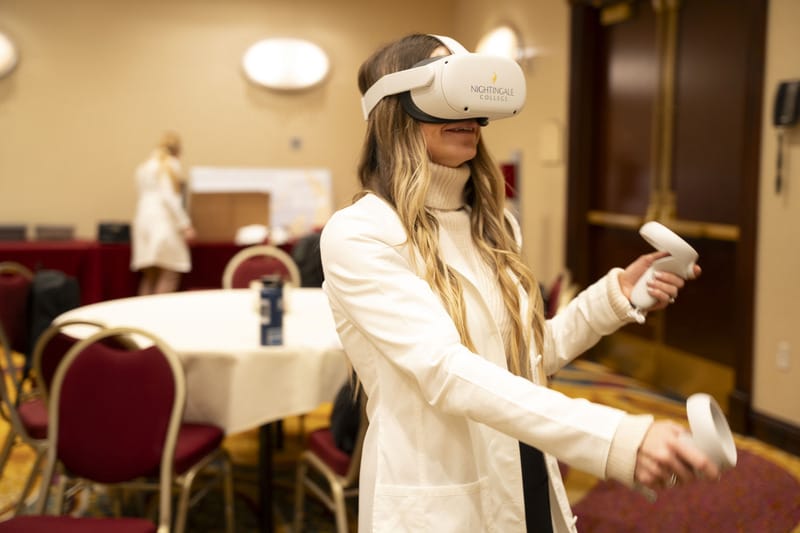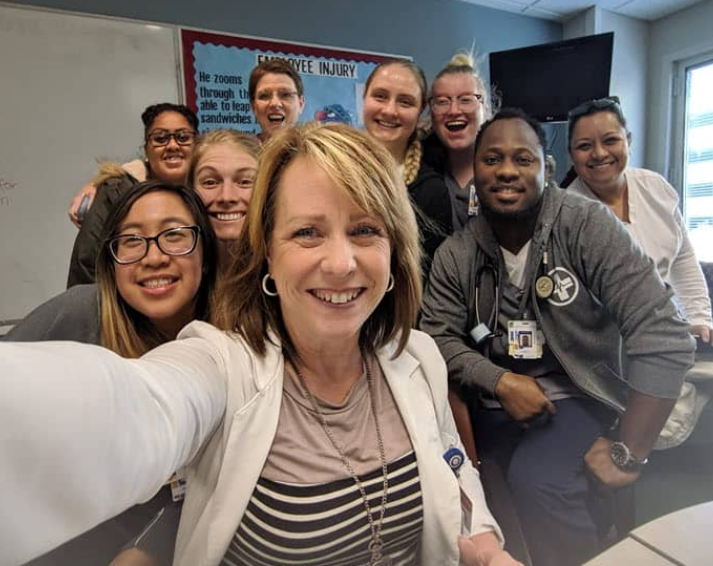

New research from Nightingale College shows that virtual reality (VR) nursing education improves academic scores by nearly 6% while cutting training costs by 40%, offering a powerful solution to the nationwide nursing shortage. However, inconsistent state regulations on VR simulation hours risk slowing wider adoption, college leaders warned at last month's International Nursing Association for Clinical Simulation and Learning (INACSL) 25 Conference in Denver.
Key Findings from the 2020-2025 Nightingale College Research
Academic Performance
- Nursing students who use VR consistently score 5.9% higher on assignments (2025 Findings).
- Students using 3D headsets score marginally higher on assignments in fewer attempts and less time (2025).
- Learner scores rose 171 points Learner scores rose significantly on final exams after using VR (2023 research).
Cost-effectiveness
- VR education takes 22% less time than traditional physical simulation, making it 40% less expensive (2023).
- VR doesn’t require training facilities and faculty (2022 and 2023 research), eliminating geographic barriers for rural students with limited clinical access.

Nightingale College's President Jeffrey Olsen and President of Nightingale Innovations Juliet Kolde presented their research at INACSL 25. "VR isn't just supplemental to education — it's becoming central to solving nursing shortages," said Olsen.
“VR and in-person clinical training offer different but overlapping benefits,” added Kolde. "Our research shows both educational experiences can make the difference between good and transformative outcomes.”

Nightingale College deployed Meta Quest VR headsets to all students — one of the largest such rollouts in U.S. education.
The findings arrive amid a critical nursing workforce crunch: nearly 700,000 nursing school applicants are rejected annually due to limited clinical placements. While states like Texas and Florida have updated accreditation rules to include VR simulation hours, others restrict its use for licensing, limiting the technology’s potential to address shortages.

Nightingale is now analyzing VR’s impact across diverse student populations and exploring how virtual skills translate to real-world clinical care. Meta Reality Labs (Burlingame, CA), a key technology partner, continues to support Nightingale’s efforts to push simulation learning into the future.
"It's clear the nursing education community is interested in driving real innovation to solve nursing and healthcare shortages," said Kimberly-Ann Estacio, Meta Reality Labs Solutions Sales Manager. "We look forward to partnering with Nightingale College to revolutionize the future of simulation learning."

Founded in 2010 and headquartered in Salt Lake City, Utah, Nightingale College is a private, accredited nursing institution dedicated to addressing the nation's nursing shortage. The college offers a range of programs, including Associate of Science in Nursing, Bachelor of Science in Nursing, Registered Nurse-to-BSN, and Master of Science in Nursing Education. With over 35 regional healthcare partner locations across 12 states, Nightingale provides students with essential hands-on training through clinical hubs, ensuring practical experience in real-world settings. By integrating virtual reality simulations and online learning platforms, the college delivers flexible, accessible education to nursing students nationwide.
Learn more at nightingale.edu.


